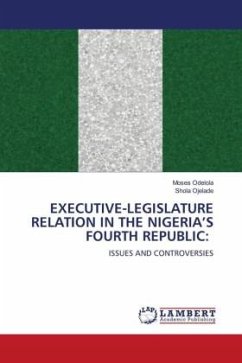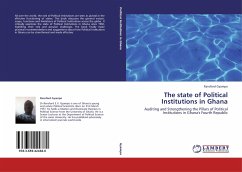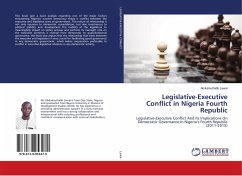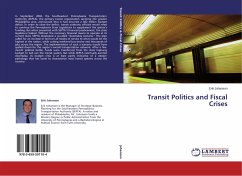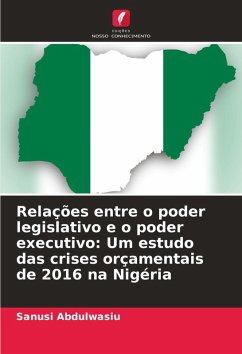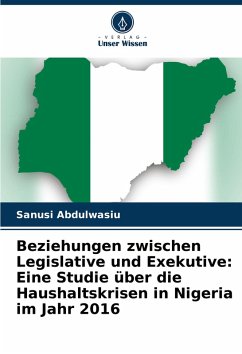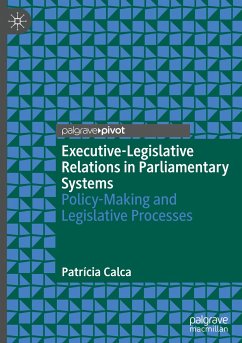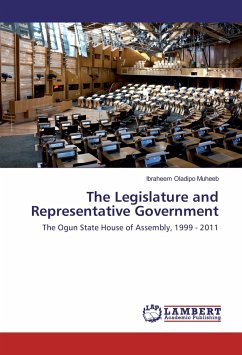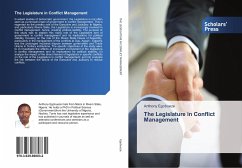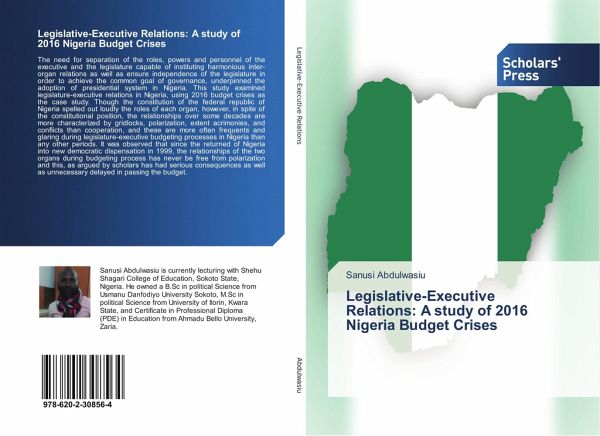
Legislative-Executive Relations: A study of 2016 Nigeria Budget Crises
Versandkostenfrei!
Versandfertig in 6-10 Tagen
40,99 €
inkl. MwSt.

PAYBACK Punkte
20 °P sammeln!
The need for separation of the roles, powers and personnel of the executive and the legislature capable of instituting harmonious inter-organ relations as well as ensure independence of the legislature in order to achieve the common goal of governance, underpinned the adoption of presidential system in Nigeria. This study examined legislature-executive relations in Nigeria, using 2016 budget crises as the case study. Though the constitution of the federal republic of Nigeria spelled out loudly the roles of each organ, however, in spite of the constitutional position, the relationships over som...
The need for separation of the roles, powers and personnel of the executive and the legislature capable of instituting harmonious inter-organ relations as well as ensure independence of the legislature in order to achieve the common goal of governance, underpinned the adoption of presidential system in Nigeria. This study examined legislature-executive relations in Nigeria, using 2016 budget crises as the case study. Though the constitution of the federal republic of Nigeria spelled out loudly the roles of each organ, however, in spite of the constitutional position, the relationships over some decades are more characterized by gridlocks, polarization, extent acrimonies, and conflicts than cooperation, and these are more often frequents and glaring during legislature-executive budgeting processes in Nigeria than any other periods. It was observed that since the returned of Nigeria into new democratic dispensation in 1999, the relationships of the two organs during budgeting process has never be free from polarization and this, as argued by scholars has had serious consequences as well as unnecessary delayed in passing the budget.



